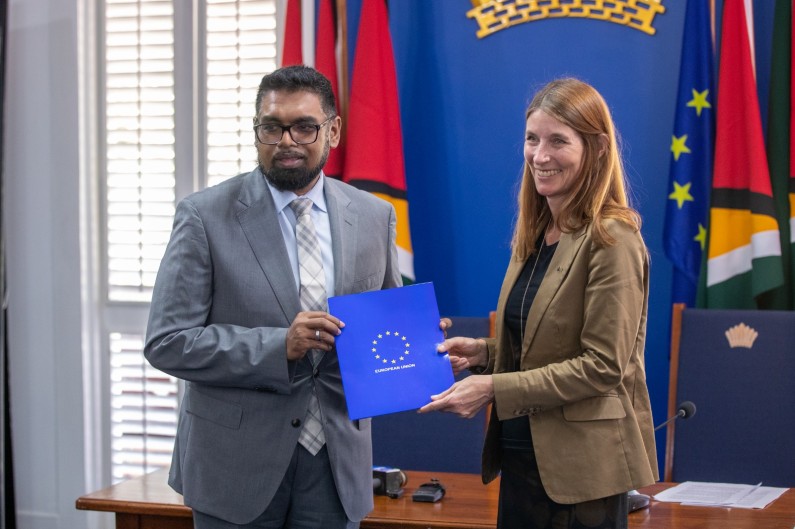
The European Union (EU) and the Government of Guyana, today launched a €10 million Sustainable Forest Livelihoods Project.
The project is intended to benefit communities in Guyana, and its eastern neighbour, Suriname.
It will see Guyana benefiting from a grant of €5million, which is designed to help the country maintain healthy forests. The project will be executed by the French Development Agency and the World Wildlife Fund.
In his address during the launching ceremony at State House, President Ali said the Sustainable Forest Livelihoods Project will play an important role as Guyana forges ahead with the creation of a Local Carbon Economy, adding that it will also support sustainable livelihoods at the local level.
“This partnership with AFD and WWF is underpinned by focus on what works, moving to create practical solutions, development challenges and addressing the vital role that forests play in overcoming these challenges. Sustainable livelihoods sit at the heart of this endeavour, as when we create opportunities for people for economic advancement and social upliftment, we provide them with resources to make decisions to safeguard the environment and protect forest,” President Ali explained.
According to the President, Guyana has long focused on the search for practical solutions to be more energy efficient, resulting in it becoming the first developing country in the world to produce a Low Carbon Development Strategy (LCDS) in 2008.
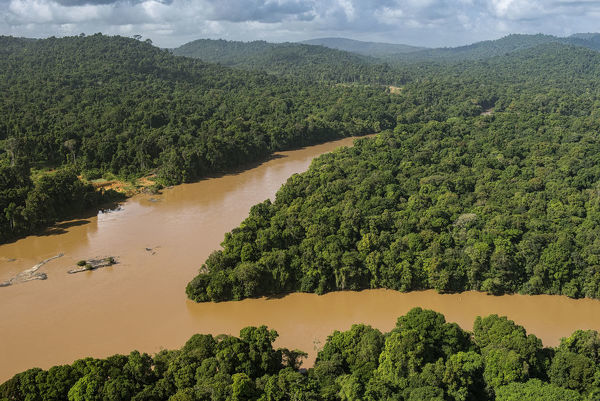
He said over the years, Guyana has found a very delicate balance in the development and advancement of forested communities in the context of Sustainable Forestry Management, and will continue to do so as it rolls out LCDS 2030.
“We should not ever under the value our contribution and our record in terms of deforestation rates, that is not by accident, that is by deliberate planning, deliberate policy and a strong understanding of the role of forest in today’s environment and in the fight on climate change,” President Ali said.
It was also noted that Guyana is also working to provide global leadership on Sustainable Forest Management, and on the utilization of the potential of the forests for the transformation of countries by creating a social, economic, sustainable model that values the forests as global, natural assets.
As it stands, more than 80 million hectares of Guyana’s forests are intact, representing some 89%.
“Every year this forest removes 154 million tons of carbon dioxide from the atmosphere. The forest provides vital ecosystem and environmental services to the world. So, our forest is not just standing trees, it is an important global asset that provides global services and in the provision of those global services, it is only fair that the forest earns for the country and people who ensure that it stays intact in support of those global services. We are, therefore, very pleased to join the European Union and the AFD and WWF Guianas in creating this important partnership to safeguard forests while sustaining forests livelihoods,” the President said.
In her address, Deputy Secretary General of the European Union Action Service, Ms Helena Konig said that the project will strengthen capacity development and sustainable livelihood in forest dependent communities in Guyana and Suriname.
Ms Konig said while Guyana has historically maintained low rates of deforestations, its ongoing economic boom poses the risk of disrupting the livelihood of forest dependent communities.
“We commend Guyana for these tremendous efforts to maintain a near zero deforestation but we must acknowledge that the booming economy could potentially disrupt traditional livelihoods and due to increased economic activity, pressure on forests, rivers, oceanic ecosystems will intensify. At the same time, and despite the immense natural resource wealth that characterizes a forest, not everyone is able to generate sufficient income. Remote and small communities offer few job opportunities and push local communities towards unsustainable exploitation of natural resources with potentially severe consequences for forest biodiversity and ecosystem services,” she reasoned.
The EU official noted that the project is fully in line with Guyana’s Low Carbon Development Strategy and will help to preserve and enhance the sustainable development role of forest as a key asset.
The Sustainable Forest Livelihoods Project is also a flagship project under the EU’s Global Gateway Strategy. Through the Global Gateway, the EU is investing in smart, clean and sustainable connections across the globe to boost trade, strengthen value chains, and expand economic opportunities for the EU and its partners.












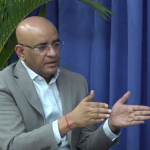
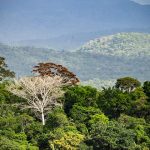
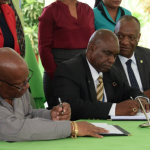


You must be logged in to post a comment Login